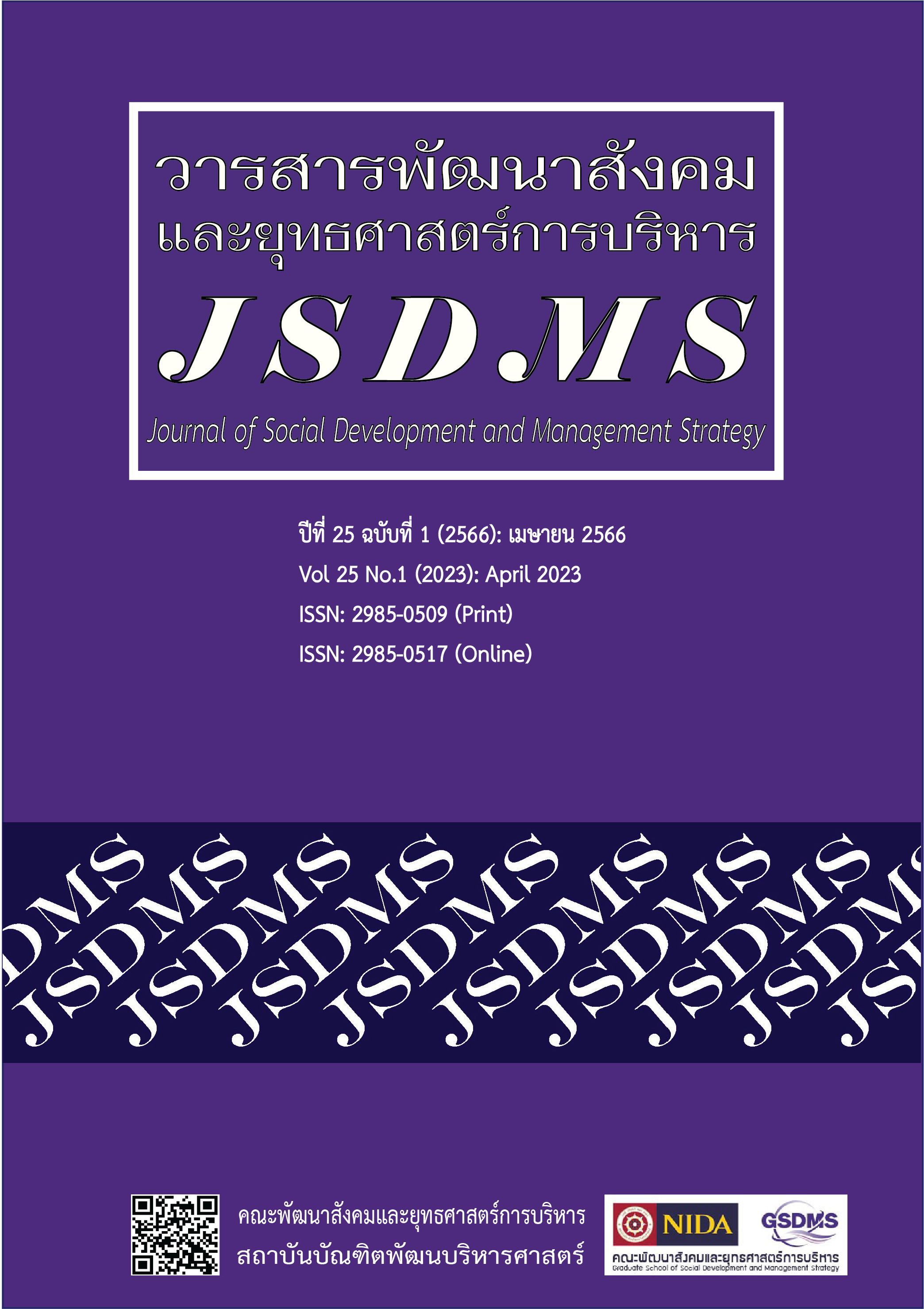Factors Predicting Family Strength Case Study of Pa Sao Subdistrict Community, Mueang District Uttaradit Province
Main Article Content
Abstract
The purpose of this analytical research was to study families situations and factors affecting a family’s strength in Pa Sao subdistrict community Mueang District Uttaradit Province. The sample was representative of the head of the family obtained through systematic random sampling. Data were collected using questionnaires. The statistic analysis consisted of descriptive statistics and stepwise multiple regression. The results showed that the sample was the head of the family, 70.33%, the average age was 59.89 years (S.D.=13.53). The highest level of education of the head of the sample was primary school (57.35%), and single families (78.33%). The average number of family member was 4 (S.D. = 1.72). The special family characteristics were family without child (37.88%), families providing child care (25.76%), single-parent families (21.21%), and families with only the elderly alone and families with the elderly provided child care (7.58%. 60.67%, respectively). The family members with high dependency were the elderly (80.81%). The overall family strength was at a moderate level with average 144.81 (S.D.=12.52). Risk and management in difficult situations (β=0.781), economic self-reliance (β=0.344), family relationships (β=0.290), can predict family strength by 36.6% (R2=0.366).
Article Details

This work is licensed under a Creative Commons Attribution-NonCommercial-NoDerivatives 4.0 International License.
References
Best, J. W. (1981). Research education. (4th ed.). New Jersey: Prentice Hall Inc.
Bhubate Samutchak, Teeranoot Konkaew, & Ridhwan Uden. (2017). Well-being of Thai families (Research Report) [In Thai]. Nakhon Pathom: Institute for Population and Social Research, Mahidol University.
Bowes, J., & Warburton, W. (2012). Families as the primary context of children’s development. In Bowes J. Grace R. & Hodge K. (Eds.), Children, families and communities: Contents and consequences (4th ed., pp. 95-116). Melbourne: Oxford University Press.
Department of Women's Affairs and Family Development. (2016). Report on the situation of strength of Thai families for the year [In Thai]. Retrieved August 13, 2022 form https//www.m-society.go.th/aartical_attach/17445/19829/pdf
Dusadee Yolao, Ngamta Vanindananda, Chaiwat Wongasa, & Tasana Thongpukdee. (2002). Family strength: A healthy family. The Journal of Behavioral Science, 8(1), 1-10.
Jarumporn Vuthivaitya. (2014). Intra-family communication patterns, attitudes and behaviors of pre-sexual intercourse a good day for teenagers in Bangkok [In Thai]. Retrieved July 13, 2022 form book.gs.ac.th/57/grc15/files/hmp56.pdf
Kawinarat Suthisukon, Jiraporn Chompikul, & Thamma-Apiphol. (2017). Factors Affection Relationship in Thai Families [In Thai]. Local Administration Journal, 10(2), 152-168.
Kitipat Nontapattamadul. (2003). Study family security the frontier of knowledge for the security of human [In Thai]. Journal of Social Work, 11(3), 130-134.
McGuire, A., Runge, C., Cosgrove, L., Bredhauer, K., Anderson, R., Waller, M., & Naveld, P. (2012). Timore-Leste family study: Summary report. Brisbane, Australia: The University of Queensland.
Nachima Bakoh. (2017). Positive psychology and social capital towards self-management and internal management families of married muslim Women lead to strong families in the three border provinces [In Thai]. (Unpublished doctoral dissertation), Srinakharinwirot University, Bangkok.
Nuanchavee Prasertsuk. (2015). Constructive communication for family happiness [In Thai]. Veridian E-Journal, Silpakorn University, 8(2), 737-747.
Office of Health Promotion, Department of Health, Ministry of Public Health. (1997). Study of research results and guidelines build a desirable family in Thailand [In Thai]. Bangkok: Health System Research Institute.
Office of Social Development and Human Security Uttaradit Province. (2021). The results of the strong family survey Uttaradit. Uttaradit: Office of Social Development and Human Security.
Panadda Yimsakul. (2018). The strengthening Thai family by using phychological knowledge. DRURDI Research for Community Service Journal, 4(1), 59-66.
Puntsri Polsri, Kitirat Sihaban, & Boonyasarit Aneksuk. (2017). Approaches of Building Family Strengths in the Slum in Ubon Ratchatani Province [In Thai]. Academic Journal Phranakhon Rajabhat University, 7(1), 64–73.
Rogers-Baber, M. (2017). Protective factors in families: Themes from a socioecological study of Australian defense force families experiencing parental deployment, SAGE Open, 4(2), 1-16.
Sa-ard Sriwan, Sanya Kenaphoom, & Pakdee Phoosing. (2017). Social strength based on strength family institution [In Thai]. Journal of Research and Development Institute, Rajabhat Maha Sarakham University, 4(2), 93-111.
Sriprapai Inchaithep. (2011, August). The development of happiness family indicators for families in Lampang province [In Thai]. Paper presented at the meeting of Graduate Research Presentation Conference Sukhothai Thammathirat University No. 1, Sukhothai Thammathirat Open University.
Thipawan Ramrong & Matrinee Raktanonchai. (2011). Formulation of strong family indicators [In Thai]. Journal of Soc Sci & Hum, 37(1), 198-208.
Tippavan Surinya. (2004). The study of the family strength; Psychological factors and modeling [In Thai]. Health Policy and Planning Journal (Thailand), 7(4), 93-106.
Tippavan Surinya. (2008). Model of strengthening Thai families [In Thai]. Maharat Nakhon Ratchasima Hospital Medicine Bulletin, 32(2), 110-119.
Uttaradit Province Office. (2021). Plan and strategies of Uttaradit province [In Thai]. Uttaradit: Author.
Walsh, F. (2003). Family resilience: A framework for clinical practice. Family Process, 4(2),1-18.
Yutthana Chaijukul, Panee Boonprakob, Manat Boonprakob, & Tasana Thongpukdee. (2009). Family strength research and development through participatory learning process of Tambon Administrative Organization Leader [In Thai]. The Journal of Behavioral Science, 15(1), 162-184.


